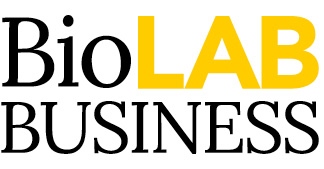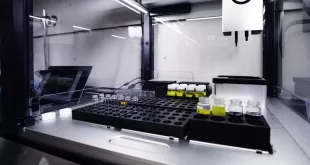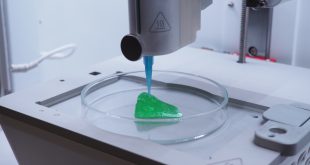By Jana Manolakos
While medicines have been extracted from plants for centuries, plants and plant cell systems today can be genetically engineered to serve as drug-producing factories for a range of antibodies and other protein-based therapeutics and vaccines.
At the forefront stands Canadian biopharmaceutical company PlantForm, which is harnessing plants for cost-effective therapeutic drugs for cancer and other life-threatening conditions — including a potential treatment for coronaviruses like COVID-19.
PlantForm develops and produces antibody and protein drugs in tobacco plants using a unique manufacturing platform, trademarked vivoXPRESS. The proprietary system is based on work that began at the University of Guelph in the 1990s, when Canadian plant scientist Christopher Hall recognized the advantages of using transgenic tobacco plants to produce antibody drugs. Tobacco plants were appealing due to their well understood genetics and because they aren’t used as food crops.
The technology is capable of reducing the production costs of biopharmaceuticals up to 90%, compared to drugs produced in mammalian cell systems, said Don Stewart, PlantForm President and CEO. It also delivers high expression rates (the amount of a target molecule each plant can provide) while reducing the risk of any unwanted immune system reactions.
”We can go from tobacco seed to finished product in as little as six weeks, plus we have the ability to efficiently manufacture products that prove problematic in other manufacturing systems,” he said.
Biosimilar Pipeline
PlantForm’s drug development pipeline includes biosimilar versions of name brand drugs that are coming off patent. (Biosimilar drugs are akin to generic drugs; however, they are “similar” rather than exact copies).
Earlier this year, the company finalized a joint-venture agreement with the Health Ministry of Brazil for a biosimilar version of pembrolizumab (brand name Keytruda). Widely used in immunotherapy to treat cancers like melanoma, lung cancer, head and neck cancer, and stomach cancer, sales of Keytruda are expected to reach $22.5 billion by 2024.
PlantForm is also working to develop a biosimilar version of ranibizumab (brand name Lucentis) for age-related macular degeneration, and its subsidiary AntoXa Corporation is developing an innovative therapeutic drug as a potential treatment for coronavirus infections, including COVID-19, through a contract with Defence Research and Development Canada (DRDC). PlantForm established AntoXa to develop drug products to protect military and civilian personnel from biological and chemical agents that might be used in terrorist attacks, as well as outbreaks of naturally occurring infectious diseases.
Animal health pipeline
In October 2021, the company signed a commercialization agreement with partners in South Korea to bring the world’s first plant-derived vaccine against Classical Swine Fever to North American and key Latin American markets.
Meanwhile, with funding from the Ontario Agri-Food Research Initiative, PlantForm is working with Agriculture and Agri-Food Canada and Western University on an edible antibody therapeutic that prevents E. coli 0157 infection in pigs. The company also received funding from Canada’s AgriScience Program to work on an economical and effective vaccine for the prevention of Porcine Epidemic Diarrhea Virus infection in piglets.
 BioLab Business Magazine Together, we reach farther into the Canadian Science community
BioLab Business Magazine Together, we reach farther into the Canadian Science community





